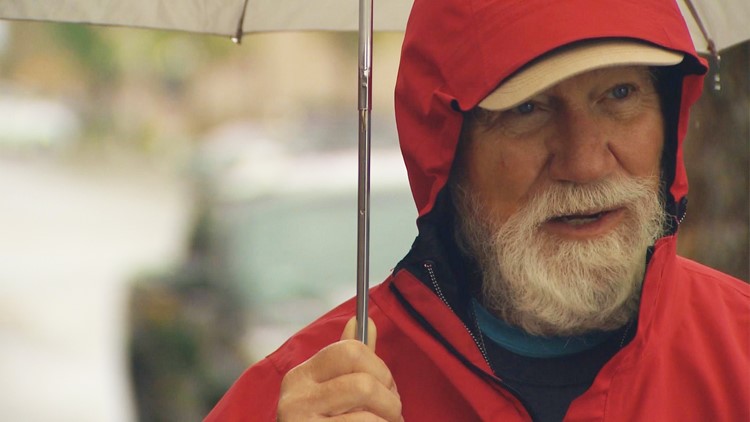The online shopping boom has changed the face of commerce for some Washington border cities. Canadian shoppers are finding a unique way to avoid expensive international charges by making regular drives across the border.
In recent years, border towns like Blaine have been riding a boom driven by postal shipping stores, which allow customers to rent out a box or shelf space for package deliveries.
"A lot of the stores online have free shipping after a certain amount, only in the states, so it just makes it worth it," said Daniela Hernandez, a resident of Vancouver, B.C. “You don't have to pay anything for shipping.”
Hernandez comes with her mom and brother almost every Sunday and said she has three friends who do the same.
“There are more options, way more stores, and it ends up being cheaper.”
To accommodate customers like Hernandez, stores have popped up in Blaine, Lynden, and Sumas. Blaine seems to have the most, with more than a dozen, some are even run out of people's homes.
Canadian citizens say they save money by avoiding the international shipping charges and, in some cases, they can get products that are not available in Canada.
Victor White works with laser cutters and drives down from Westminster, near Vancouver, for specialty tools and items that people sometimes will not even send to Canada or the costs are too much.
"The U.S. does capitalism really well, and if I want a good selection of items to choose from, we just use the U.S. for that,” White explained.
Blaine City Manager Michael Jones believes the money and added traffic has helped with a “renaissance” in the city’s downtown. The stores generate money for the city that has a population of just over 5,000 people, with sales tax collected from all those online sales.
Jones said it's hard to say how much comes from the stores because the state doesn't separate out what sales tax money was spent by people who live there from people who don't.
“We know it's substantial, we really can't pin down how big it is,” he said.
The city is concerned about litter from packaging materials and recently changed zoning laws to prevent more of the stores from setting up in their downtown core.
“We're happy to have them and happy to have them operate but we don't want our downtown to become just full of mailbox delivery stores,” Jones said. “It's important to have brick and mortar retailers; it's important to have services, restaurants and all the other things that make a town more complete.”
City research shows many of these over-the-border buyers spend money at other businesses. Locals say they’re usually friendly.
Bill Retterer described it as good people watching.
“I’ve seen guys put a wench on the front of a jeep one day, we've seen them put bikes together, a lot of people put on the clothes that they get…” he explained.
The purchases must be declared at the border and are still subject to Canadian taxes, although it’s impossible to say how many purchases aren't reported.



